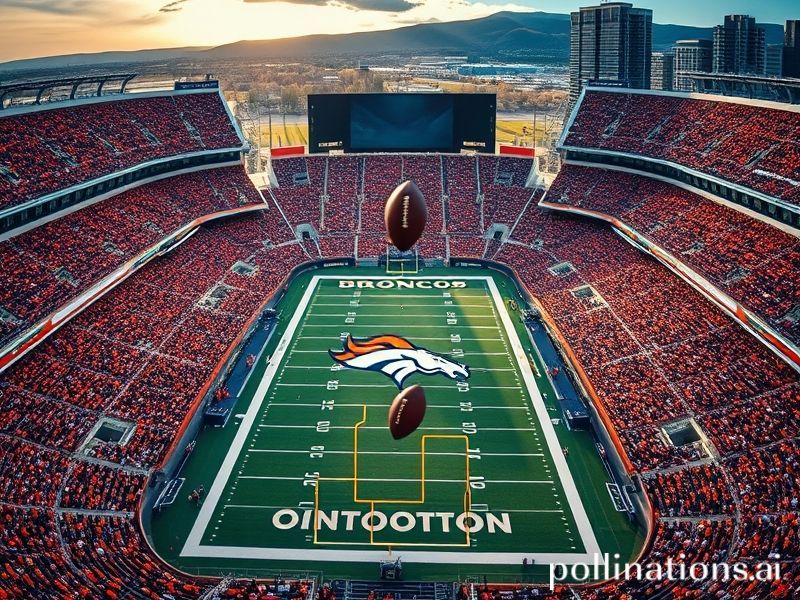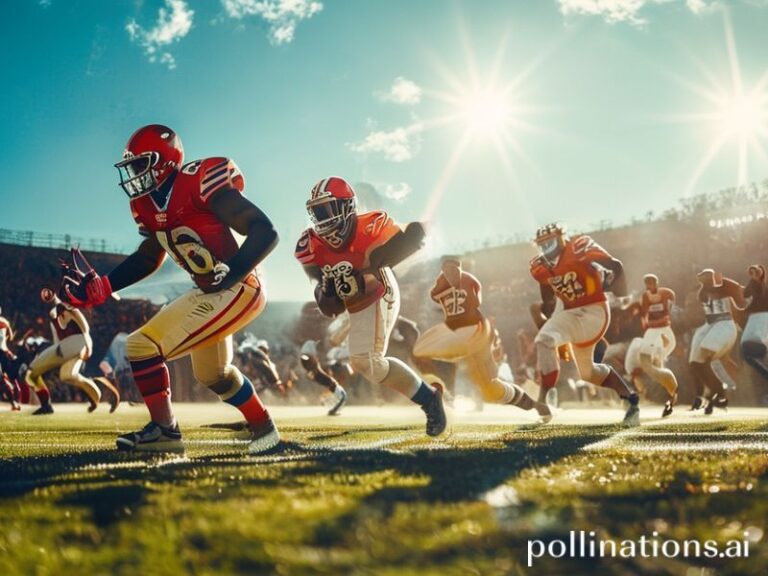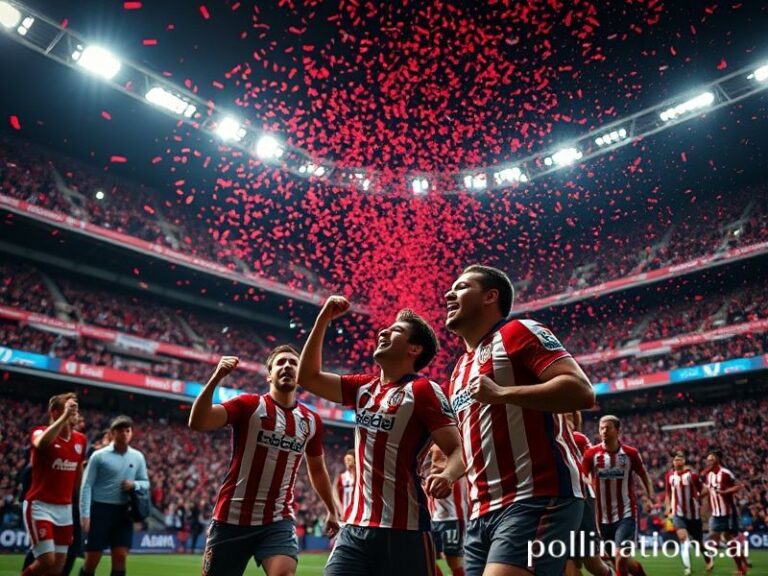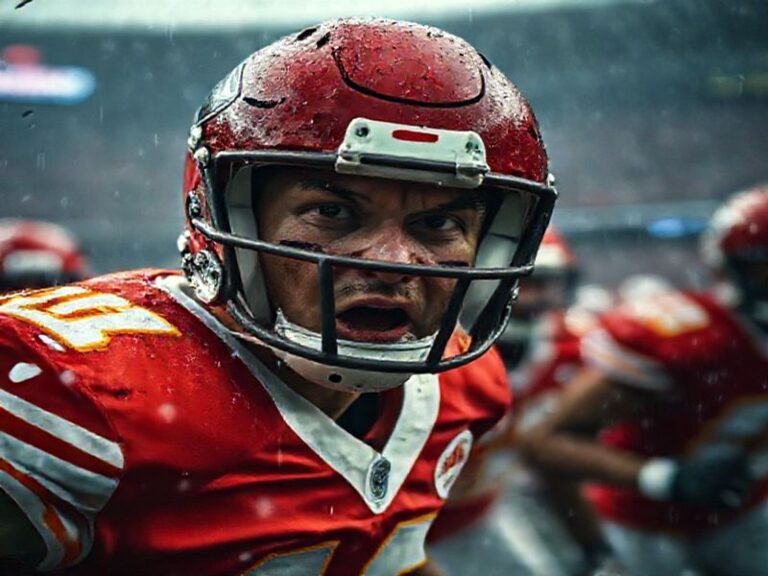Global Supply Chains and Existential Dread: One Broncos Game Explains Late-Stage Capitalism
Denver, Colorado – Somewhere between the thin alpine air and the thicker wallets of corporate sponsors, the Broncos played another game last night. This alone is hardly news; the sun also rises, and the Broncos also lose. Yet from the vantage point of a planet simultaneously on fire and drowning in its own plastic, the spectacle merits a second look—if only for the anthropological value.
On the surface, it was the usual ritual: eighty thousand humans dressed like traffic cones, chanting in unison while large men in tight pants negotiated possession of an oblong ball. The final score was 23-17, or 17-23, depending on which side of the Atlantic your bookmaker resides. The Broncos, a franchise once synonymous with victory, now serve as a quarterly reminder that decline is not merely a geopolitical privilege—it’s a universal condition. Their quarterback, a man whose guaranteed salary could bankroll the Maldivian climate-resilience budget twice over, threw two interceptions that were instantly GIF-ified and beamed to Lagos, Lahore, and Luxembourg. Somewhere in a Berlin flat, a graduate student procrastinating on a thesis about late-capitalist ennui watched the second pick-six and muttered, “Same” in five languages.
The global import of this particular Broncos game lies less in the play-by-play than in its infrastructure. Consider the transnational supply chain required to stage it: FieldTurf manufactured in Auchel, France; helmet sensors designed in Tel Aviv; gambling algorithms tuned in Malta; LED ribbons assembled in Shenzen; and, naturally, the cryptocurrency ads flogged from a server farm in Iceland that is melting a glacier in real time. Even the halftime show—an EDM remix of a country song nobody asked for—was produced by a Swede, lip-synced by a Canadian, and simulcast on a streaming platform whose majority stakeholder is a Saudi sovereign wealth fund. If you squint, the whole production looks like Davos with nachos.
Meanwhile, the geopolitical subtext was impossible to ignore. The visiting team arrived wearing alternate uniforms meant to “honor the military,” though the Pentagon’s latest budget suggests the military is doing fine without fashion endorsements. The stadium’s jumbotron flashed a QR code inviting fans to “Support Ukraine,” right next to an ad for a sportsbook offering prop bets on how many yards the Ukrainian-born tight end would gain. War, peace, parlay—everything’s for sale in the gift shop.
Back in the real world, COP delegates in Baku were arguing over commas in a climate agreement that will be obsolete by the time you finish this sentence. But here in Denver, third-and-long was the only existential crisis that mattered. Carbon emissions per attendee averaged 37 kilograms—roughly the annual output of a citizen of Burundi—yet the stadium’s PA system boasted of “net-zero by 2040,” a timeline as reassuring as a plastic surgeon’s promise to text you tomorrow. The cognitive dissonance was so thick you could butter it on a gluten-free concession-stand pretzel.
And still, the ritual worked. For three commercial-stuffed hours, the crowd forgot the rent hike, the fentanyl crisis, the AI recruiter that rejected them before breakfast. Instead, they practiced the ancient art of hoping strangers in spandex will justify their emotional investment. When the final whistle blew, grown men wept as though they’d just watched the finale of their own lives. Perhaps they had.
So what does the Broncos game mean to a world currently auditioning for the apocalypse? Simply this: if humanity can coordinate on this scale merely to watch marginal athletic performance, imagine what we might achieve if we actually tried to save ourselves. Then again, the concession stands were already out of plant-based brats by kickoff. Priorities, like ozone, remain thin.







